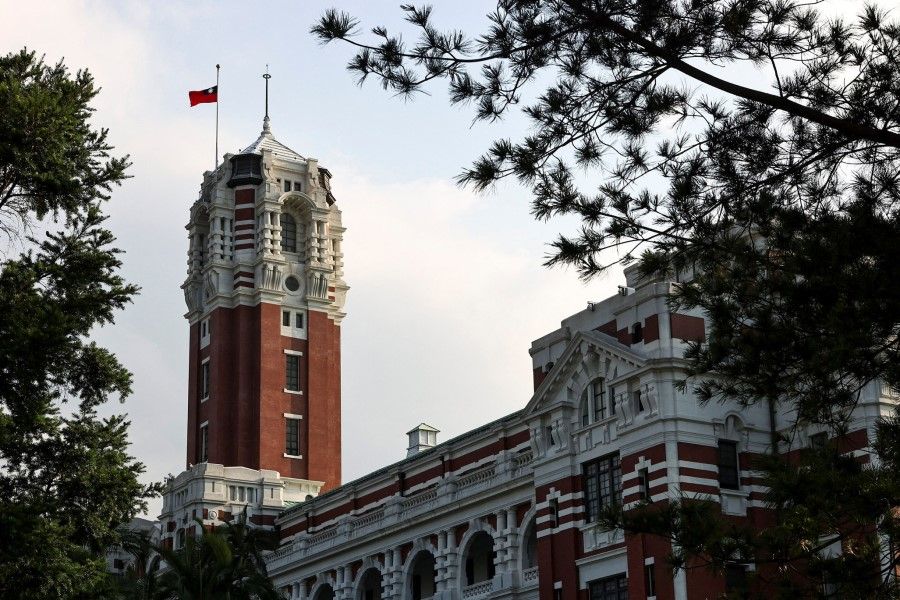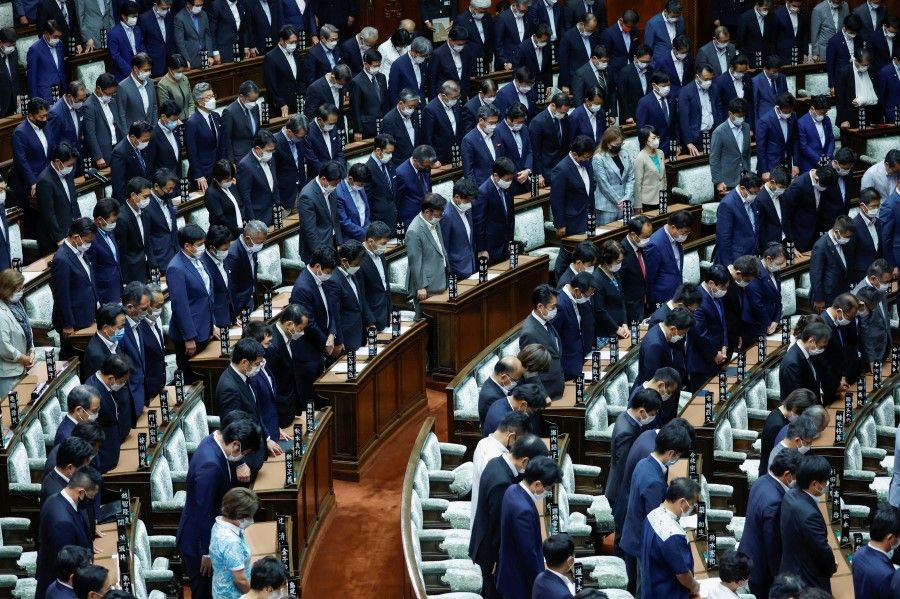The need for institutional expansion in Japan-Taiwan relations

Several weeks have passed since the killing of former Prime Minister Shinzo Abe. The Japanese government has decided to go ahead with a state funeral in September, notwithstanding objections from some quarters in Japan. Among members of the international community, Taiwan had the strongest reaction to the news of Abe's assassination.
During his time in office, Abe made various attempts to solidify relations with Taiwan, albeit not always with the desired effect, as seen in examples such as the import ban on food products from Fukushima and four other Japanese prefectures. Even after he stepped down as prime minister, Abe further stepped up his efforts to strengthen relations with Taiwan, and was originally scheduled to attend a conference in Taiwan sponsored by the Lee Teng-hui Foundation at the end of July. The latter efforts can be said to be based on his political convictions.
Japan-Taiwan relations are dependent on the national legislature of Japan, in other words, Diet members.
Upon receiving the news of Abe's death, Taiwan President Tsai Ing-wen not only extended her condolences but ordered flags to be flown at half-mast at public schools and institutions in a show of mourning and respect. Such public expressions of grief were not seen in any other nation or region. So why does Taiwan empathise so strongly with this single member of the Diet?

Certainly, one reason is that Abe's various messages to Taiwan had filtered down to Taiwanese society. However, institutional factors also come into play - Japan-Taiwan relations are dependent on the national legislature of Japan, in other words, Diet members.
When Japan normalised diplomatic relations with the People's Republic of China (PRC) fifty years ago, on 29 September 1972, it severed already existing diplomatic ties with the Republic of China (ROC). Despite a break-off of diplomatic relations, however, economic and cultural relations were maintained with the latter.
The 1972 Japan-China Joint Communique states, "The Government of the People's Republic of China reiterates that Taiwan is an inalienable part of the territory of the People's Republic of China. The Government of Japan fully understands and respects this stand of the Government of the People's Republic of China, and it firmly maintains its stand under Article 8 of the Potsdam Proclamation." It is within the framework of the notion "fully understands and respects" that Japan has positioned its relationship with Taiwan.
Japan-Taiwan relations have undergone dramatic changes since that time. The first turning point occurred in the 1990s. Taiwan's democratisation following economic development led to a positive turnaround in Japan's perception of Taiwan. The second turning point was the Great East Japan Earthquake on 11 March 2011. The large amount of donations from Taiwan in the aftermath of the disaster raised awareness of Taiwan in Japanese society and produced the sentiment in the minds of the public that Japan should "repay" Taiwan.

Since then, both the Democratic Party of Japan's Yoshihiko Noda administration and the Liberal Democratic Party (LDP)'s second Abe administration have placed an emphasis on relations with Taiwan, and deepening ties with Taiwan within the framework of the notion "fully understands and respects". Today, public opinion is strongly in favour of strengthening relations with Taiwan.
The institutional framework within which Japan-Taiwan relations are positioned is also inadequate, frequently depending on the political philosophy of the incumbent administration...
Wooing Japanese Diet members
However, there are no diplomatic relations between Japan and Taiwan. While there is a senior coordinator for Taiwan affairs in the Japanese foreign ministry and a Japan-Taiwan Exchange Association that manages working-level relations with Taiwan, these are inadequate both in terms of scale and budget for supporting the increasingly close bilateral relationship.
The institutional framework within which Japan-Taiwan relations are positioned is also inadequate, frequently depending on the political philosophy of the incumbent administration, in particular the personal political philosophy of the prime minister and ministers responsible for matters involving Taiwan.
This is all well and good when the administration takes a proactive approach to relations with Taiwan. However, when the approach taken is passive, some Diet members may be pressured by public opinion to lobby the administration to strengthen relations with Taiwan or to activate bilateral parliamentary exchanges between Diet members. The recent 2+2 talks between the LDP and Taiwan's Democratic Progressive Party are a case in point.
In contrast to the second Abe administration, neither the Suga nor the Kishida administrations declared specific policies nor did they take specific action concerning Japan's relations with Taiwan. Therefore parliamentarians are becoming more engaged with the issue.
A potential means of averting the risk of politicisation...would be to further strengthen the institutionalised relationship between Japan and Taiwan and to gain China's acceptance of this within certain limits.

Strengthening the institutional relationship
This background explains why Abe, who was active in parliamentary exchanges with Taiwan as a Diet member after the end of his second administration, was such an important figure in Japan-Taiwan relations and why his killing was seen by Taiwan as a great loss for Japan-Taiwan relations.
China adheres to the "one China" principle, and Japan "fully understands and respects" that principle. The breakdown of this framework would not be desirable for Japan-China relations at this point in time. However, with a greater emphasis now being placed on the Taiwan issue, Japan-China relations will be more heavily coloured by the personal considerations of politicians, making the situation less predictable and therefore unstable.
A potential means of averting the risk of politicisation, enhancing predictability, and stabilising the relationship would be to further strengthen the institutionalised relationship between Japan and Taiwan and to gain China's acceptance of this within certain limits.
Specifically, this could include the expansion of the Japan-Taiwan Exchange Association and Taiwan-Japan Relations Association, the elevation of the status of the Taiwan-Japan Economic and Trade Conference, and the initiation of a range of Japan-Taiwan Track 1.5 dialogues. The risk of politicisation could be reduced by rectifying as much as possible the imbalance between the public and private sectors in Japan-Taiwan relations.
Related: Japanese academic: Will Japan send troops to 'protect' Taiwan? | Are Chinese fears of a rise in Japanese militarism post-Abe valid? | Shinzo Abe's second term: Was Abe pro-China? Should the Chinese miss him? | 21st century strategist: Shinzo Abe left an indelible mark on geopolitics in Asia-Pacific | What's behind Shinzo Abe's outburst over the Taiwan Strait issue? | Japanese politicians tussle over power and speaking rights on Taiwan
